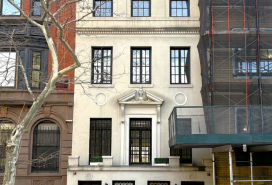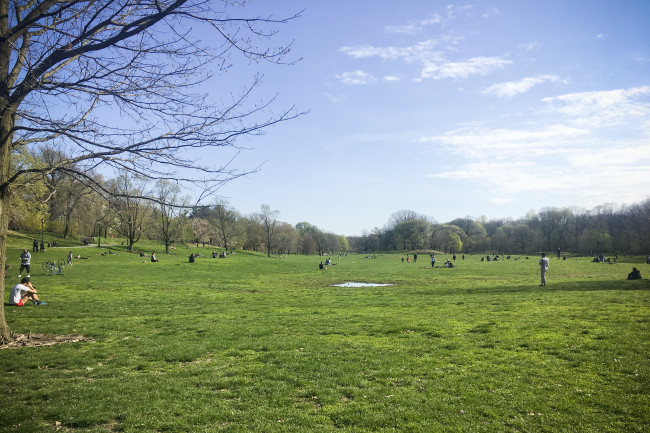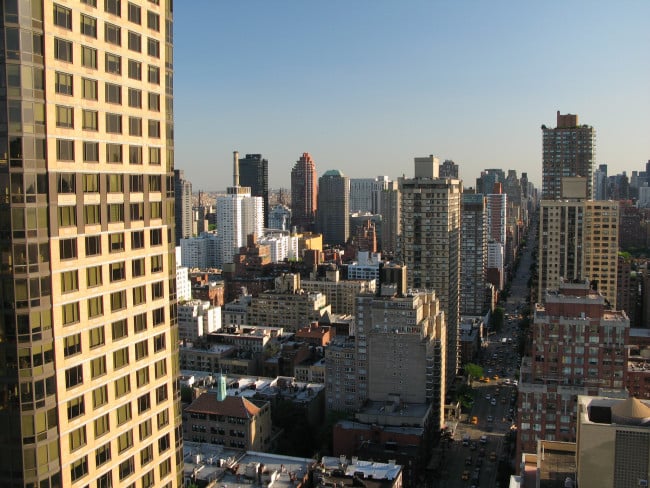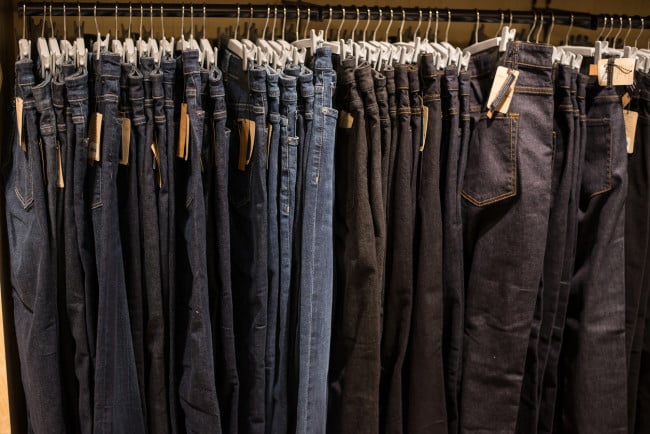I live next to a day care and work from home. Here's why I’m not tearing my hair out
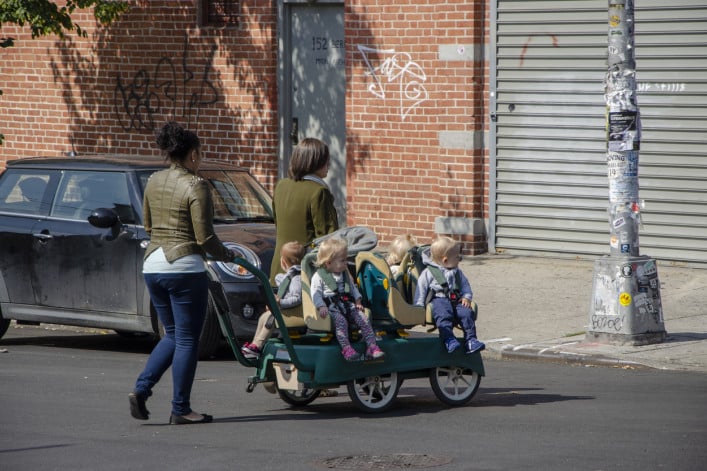
Every morning, parents come to drop kids off next door. The strollers are parked in front of the house, and the process reverses in the evening.
iStock
When we were preparing to move recently, I asked a lot of questions about our new Brooklyn rental. In the past, I've had some very bad experiences as a New York City renter—it’s one of the reasons I write about real estate—so others don’t fall into the same traps that my family and I did.
This time, we were moving to a house, not an apartment building, and I already felt reasonably confident it was a good situation. It’s a beautiful, renovated place, for starters, and we knew the neighbors on one side—they were the ones who introduced us to the owners who wanted to move quickly because of the pandemic.
Determined to stick it out in Brooklyn, but needing more space for working and learning from home (and not able to afford buying in NYC), renting a house where South Slope meets Greenwood Heights seemed like a great solution and I was thrilled when we were able to negotiate a lease and move within a couple of weeks. But that didn’t mean I was going into a new place with blinders on; I wanted to know who lived in the house on the other side.
It’s a day care, our new landlord told me. She paused for a beat, then quickly moved on to something else.
[Editor's Note: Brick Underground's series “Living Next to” features first-person accounts of what it’s like to have an iconic or unusual New York City neighbor. Have a story to share? Drop us an email. We respect all requests for anonymity.]
Maybe she thought I would be freaked out by the sound of children playing in the backyard next to ours—or crying. Or the small parade of strollers in the morning on our block, or the strollers parked in front of the house, all of which is the reality.
But I wasn’t concerned about moving next door to a family that operated a day care out of their home, and even now, after six weeks of living here, I can say that you shouldn’t be either, if you’re contemplating a similar situation, especially because home-based day cares are more prevalent in the outer boroughs.
And I say this because I know sometimes people in their 20s or early 30s don’t want anything to do with babies and are horrified by the reminder that their freedom and youth has an end date. I was that way once, a very long time ago, and I’ve met plenty of people like that.
Once I was at a party with my then-baby in tow and she threw her pacifier. It landed at the feet of a group of people who thought they were so cool.
“I’m not touching that,” said one, eyeing the glistening pacifier.
“I didn’t make that baby, it’s not my problem,” said another, as if they all weren’t inches away from me.
I wanted to make a statement, so with my baby on my hip, I retrieved the pacifier from the floor and put in my own mouth to clean it—parents know this maneuver. The cool people were thoroughly disgusted by me, but I didn't care.
That's what parenting does to you—it changes your perspective on what's important. And the reason I was not so worried by my new neighbors (who are friendly, hard-working people) was because day care had already saved my sanity, twice.
Nannies get lots of press in New York City but more affordable home-based day cares—which account for about two-thirds of day cares in the city, according to The New York Times—were my choice when each of my children were babies and I needed to go back to work—for our finances and also my mental health. My husband and I liked the fact that our children would be around other kids in a home-based setting and that there would be multiple adults to care for them.
Truth be told, though, it was terrifying at first to leave them in the hands of someone else. There are problems at some places, although our experience was very good. And unlike a nanny, who comes to your apartment, using a day care means you need the organizational skills of a military commander to get you and your baby ready and out of the house on time so you can get to work by 9 a.m. And repeat that maneuver every day. It was an exhausting time in our lives, but our children thrived and we also bonded with the other families in the daycare, making lifelong friends.
Now, even though my children now are much older (a teen and a pre-teen) somehow living next to another day care feels right—how a neighborhood should be, with young and old—on the other side of the day care is a house owned by a World War II veteran—and ages in between
It’s true, we can hear the children in the day care's backyard. Sometimes there’s crying, but it’s never a big deal. We hardly notice it—this is New York City, after all. Also, there’s a highway across the street; I’ll write about that another time. The funny thing is that my other neighbors, the ones who told us about the house, reassured us about the highway by saying, “it’s just like living next to the ocean.”
In a way, they were right. Maybe that’s why we don’t notice noise from the day care. The traffic makes a sort of constant swooshing sound. It is surprising what sort of background noises you become used to, and what you listen for.
Every day, in the middle of the morning, someone named Maya leaves the day care. The children bid her farewell like she’s going on an overseas journey—the chorus of little voices saying “bye bye Maya” goes on after I’m pretty sure whoever Maya is has already left the premises. It reminds me of when my own children were very small, and little moments could become grand occasions.
As neighbors go, I think I lucked out pretty well.
You Might Also Like











